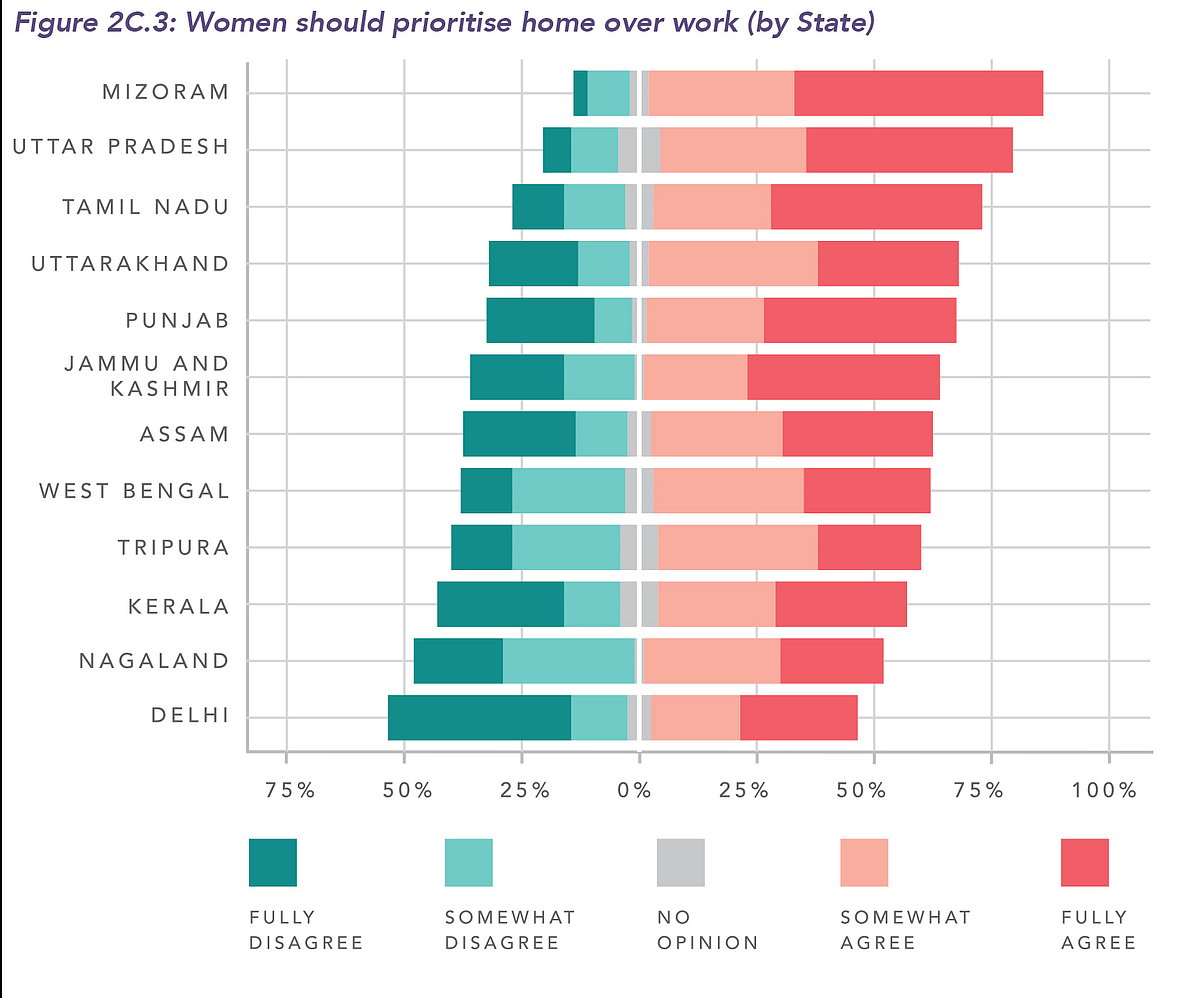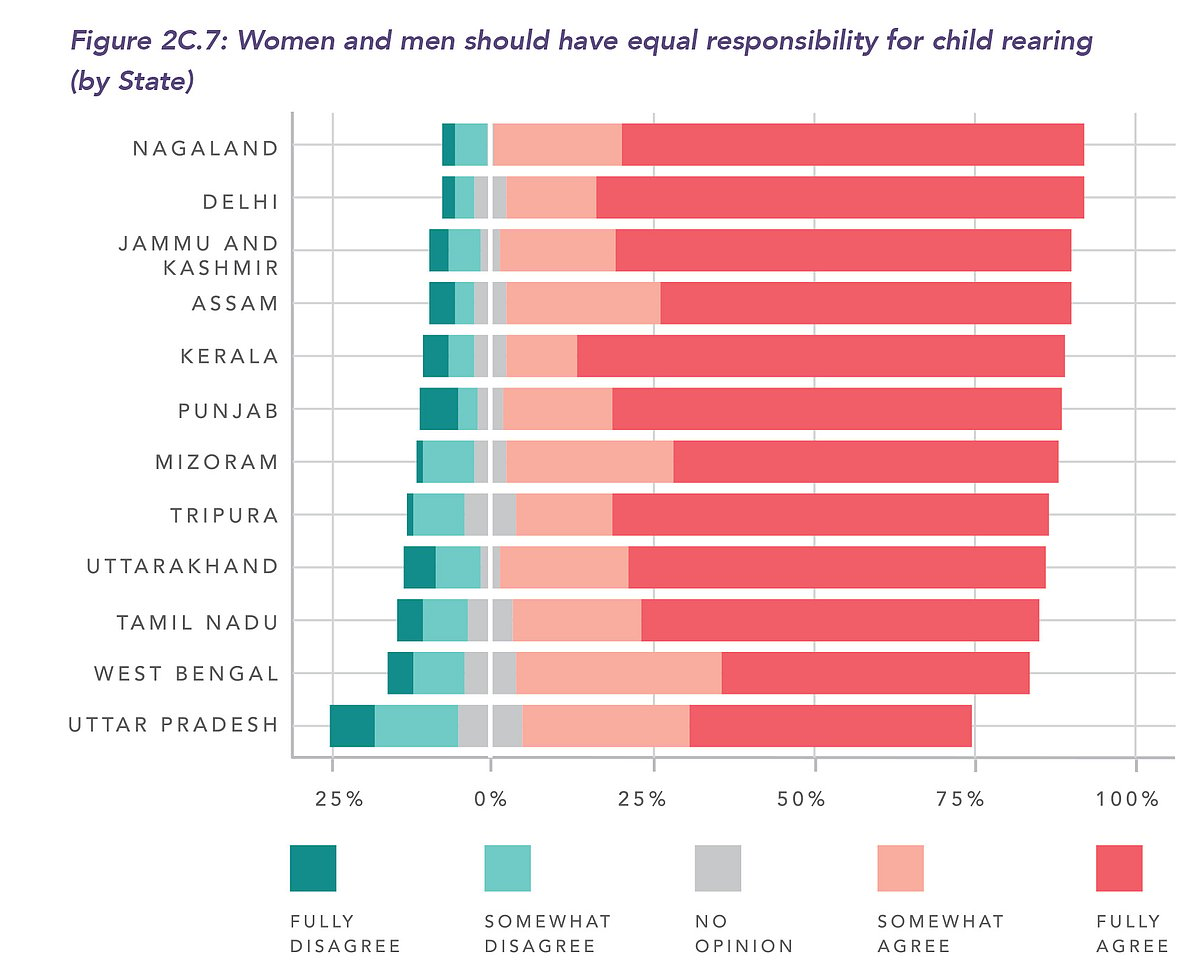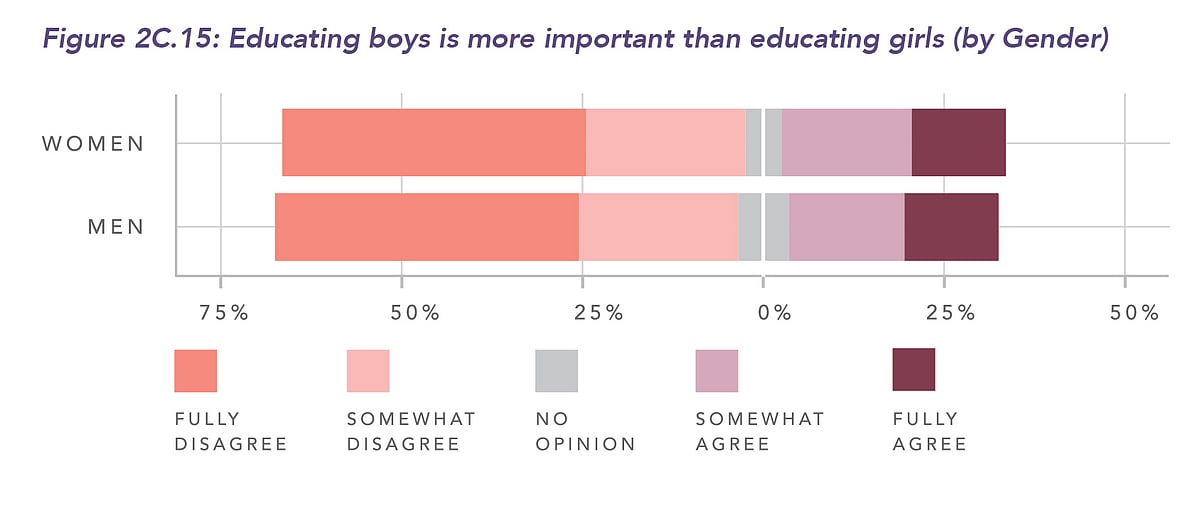Women still associated with household work in India, states survey
Household work is still associated with women and there is strongest agreement with the proposition that women should prioritise home over work

There might be a clamour for better representation for women in the Parliament, there might be 33% reservation for women in Panchayats, women might be seen as breaking new grounds, but household work is still associated with women, according to a survey.
At least 35% of respondents covered in the survey said women should prioritise home over work, and 65% said women should be equally responsible for child rearing, states ‘Politics and Society between Elections’ conducted by Azim Premji University and Lokniti.
On the other hand, 44% said women have the right to decide whether to marry and 42% said they have a right to decide who to marry. Here, it must be highlighted that 12% of respondents felt that women should not have the ability to decide whom to marry and 11% felt women should not have the right to decide whether to marry.
With respect to gender relations at home, there is a preference for women’s confinement, even seclusion to the domestic sphere in much of India and South Asia. The strongest agreement with the proposition that women should prioritise work over home is seen in Mizoram, at 53%, with Tamil Nadu behind by 8% points, and Uttar Pradesh following closely at 45%. Jammu and Kashmir, and Punjab are at 41%. It is only in Delhi that that there is a strong disagreement on this question, at 39%. However, even this is much lower than the “highly agree”-percentage point of 53 in Mizoram.
At least 52% women in Mizoram strongly agree that women should pay more attention to home, while in Delhi, 41% women strongly disagree with the idea. Apart from Delhi, women are more in agreement that home precedes work in all the states, states the report.
The opinions also varied from urban to rural areas. At least 36% of respondents in the rural areas covered in the study strongly agree to women being more relevant at home, and 29% of them somewhat agree. More men in rural areas think that a woman’s place is at home, than their counterparts in urban areas.
Among religious communities, lesser percentage of Hindus (31%) agreed that women should prioritise home over paid work; this is distantly followed by Christians at 38 percent, Muslims at 40, Sikhs at 41, and other at 42. However, for both Hindus and Sikhs, the figures for ‘strongly disagree’ are over 20%, as opposed to those for Muslims (18), Christians (11), or Other (10), which may suggest that it is more acceptable among Hindu and Sikh communities for their women to participate in paid work outside their homes.
Workforce participation for women may not completely depend on education, but economic necessities of women themselves or economic condition of a family.
What is depressing in the survey is that there is a distinct bias against education of girls. At least 30 % and 29 % of male and female respondents agreed with this idea. But, 42% of male and 43% of female respondents strongly disagree that educating boys is more important than educating girls.
But, 63% of male respondents and 66% of female respondents strongly agree that men and women should have equal responsibility for child rearing. If we were to look at it state wise, the highest numbers in the ‘strongly agree’ category are seen in Kerala and Delhi (76% in both), followed by Nagaland (72%), Jammu and Kashmir (71%), and Punjab (70%).
In states like Assam, Jammu and Kashmir, Kerala, Mizoram, Nagaland, Tamil Nadu, Tripura, West Bengal, and Delhi almost no one ‘strongly disagree’ on this point, states the survey.
What is heartening in the survey is that there is an overwhelming societal sanction for women to choose whether to get married or not. This idea of choice finds more support in Kerala, Nagaland, Mizoram and Tamil Nadu, and the highest proportion of those who strongly disagreed with this idea were in Punjab (51%) and Uttar Pradesh (49%).
Both genders largely support the idea of a women’s right to decide, with the women in UP registering slightly higher support (7%) than their male counterparts. Men in Nagaland (90%), Mizoram (87%) and Tamil Nadu (77%) who highly supported this idea, while it was women in Nagaland (90%), Mizoram (88%) and Kerala (78%) who displayed supported it.
Interestingly, this idea found more support among Christians than other religious groups. It was 87% amongst Christians, and for Hindus and Muslims, it was 66%.
There is a marginal decline of support for a woman’s right to decide on marriage as it moves towards the lower class. Amongst the upper class, it was 77%, middle class (71%), lower class (68%) and poor (68%), pointing to a possible correlation between class and attitudes to marriage.
Across states, there is general support for women deciding their own spouses, except in Punjab where 49% disagree with it. Mizoram (60 %), Uttarakhand (53%), Nagaland (52%), Kerala (51%) and Delhi (47%) showcased more respondents who agreed with the idea. And the support was highest amongst Christians (83%). It is followed by Other (79%), Hindus (70 percent) and then closely by Muslims (67 percent). Here too Sikhs remain the striking outlier where 34 % strongly disagreeing with the idea.
The survey was conducted between elections across 12 states including Assam, Jammu and Kashmir, Kerala, Mizoram, Nagaland, Punjab, Tamil Nadu, Tripura, Uttar Pradesh, Uttarakhand, West Bengal, and the National Capital Region of Delhi.
Follow us on: Facebook, Twitter, Google News, Instagram
Join our official telegram channel (@nationalherald) and stay updated with the latest headlines



